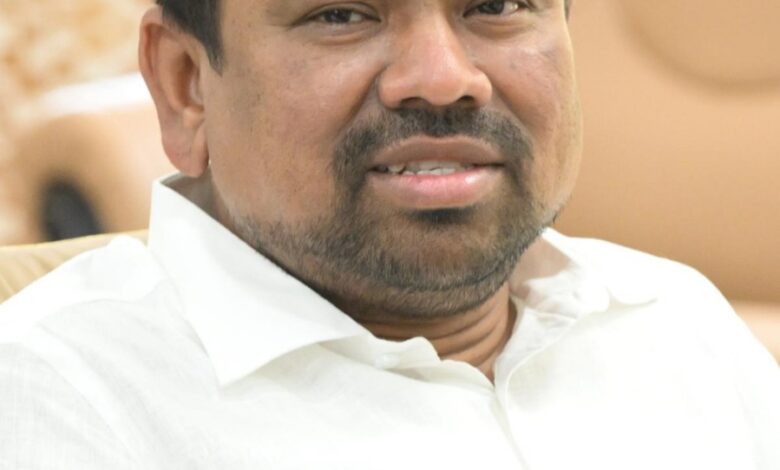Madras High Court Dismisses Plea of Tamil Nadu Waqf Board Chairman in Poll Code Violation Case
Court Rejects Request to Quash Charge Sheet Filed by Kamuthi Police in 2019 Case

The Madras High Court has dismissed a plea filed by the Chairman of the Tamil Nadu Waqf Board, seeking to quash the charge sheet filed against him and six others in a poll code violation case. The case dates back to the 2019 Tamil Nadu Assembly elections, where the Kamuthi police had lodged a charge sheet alleging violations of the model code of conduct during the election period. The court’s decision marks a significant development in the legal battle that has been ongoing for several years.
Background of the Case
In 2019, during the Tamil Nadu Assembly elections, the Kamuthi police filed a case against the Chairman of the Tamil Nadu Waqf Board, along with six other individuals, for violating the election code of conduct. The allegations against them stemmed from accusations that they were involved in illegal activities that contravened the guidelines set by the Election Commission of India, which were meant to ensure a fair and impartial election process.
The charge sheet was filed after the Kamuthi police conducted a thorough investigation into the matter. The accused, including the Waqf Board Chairman, were allegedly involved in organizing events and activities that violated the prescribed norms for campaigning and political conduct. The accused had moved the Madras High Court, seeking to quash the charge sheet, arguing that there was no substantial evidence to support the allegations against them.
Court’s Ruling
However, the Madras High Court, after hearing arguments from both sides, dismissed the plea of the Waqf Board Chairman. The court upheld the charge sheet filed by the Kamuthi police, indicating that the case against the accused could proceed. The court’s ruling was based on the fact that there was sufficient material and evidence to substantiate the allegations made in the charge sheet.
The court emphasized the importance of adhering to the model code of conduct during election periods, highlighting that any violation of these guidelines undermines the integrity of the electoral process. It rejected the argument that the charge sheet was frivolous or that it lacked merit, allowing the case to continue in the legal system.
Implications for the Accused
For the Chairman of the Tamil Nadu Waqf Board and the other accused, the court’s decision means that they will now face the legal consequences of the election code violation case. The case will likely proceed to trial, where both the prosecution and defense will present their arguments. If found guilty, the accused could face penalties and legal action, including potential disqualification from public office or other public duties.
The ruling also reinforces the principle that individuals holding public office, including the Chairman of the Waqf Board, must adhere to the legal and ethical standards set by the Election Commission of India. The dismissal of the plea serves as a reminder to public figures about the importance of following the electoral guidelines and maintaining transparency during elections.
Political Reactions
The dismissal of the Waqf Board Chairman’s plea has led to varied reactions from political parties in Tamil Nadu. Supporters of the Chairman argue that the case is politically motivated and that the charge sheet has been filed to discredit his position. They believe that the legal action is part of a larger strategy to undermine the Waqf Board’s activities and its leadership.
On the other hand, opposition parties have welcomed the court’s ruling, stating that it is a victory for democracy and the rule of law. They emphasize that no one, regardless of their position or influence, should be above the law, and that the court’s decision reaffirms the importance of free and fair elections.
Broader Legal and Electoral Context
This case is part of a broader conversation about the enforcement of the model code of conduct and the accountability of public figures during elections. The Election Commission of India plays a crucial role in ensuring that elections are conducted fairly and that all participants adhere to the established rules and guidelines. Violations of the code of conduct, such as those alleged in this case, are taken seriously and are subject to legal scrutiny.
The decision of the Madras High Court highlights the importance of upholding electoral integrity and ensuring that those in positions of power are held accountable for their actions. It also underscores the need for transparency and ethical conduct in the political arena, particularly during the sensitive period of elections.
Next Steps in the Case
With the court’s decision to allow the charge sheet to stand, the legal proceedings will continue. The next step in the case will likely involve the trial, where the accused will have the opportunity to present their defense. The outcome of the trial will be crucial in determining the fate of the individuals involved and may set a precedent for similar cases in the future.
As the case progresses, it will remain under close scrutiny, as it is not only a matter of individual accountability but also a reflection of the larger issues surrounding election laws and governance in Tamil Nadu and beyond.






